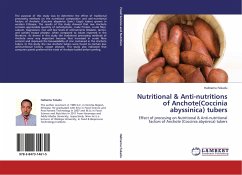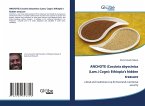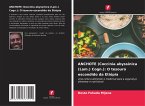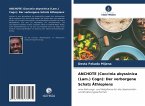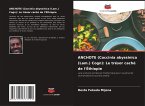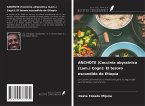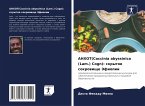The purpose of this study was to determine the effect of traditional processing methods on the nutritional composition and anti-nutritional factors of Anchote (Coccinia abyssinica (Lam.) Cogn) tubers grown in western Ethiopia. The results of this study showed that raw Anchote contains appreciable quantity of carbohydrate, crude Protein, crude fiber, calcium, magnesium, iron and low levels of antinutrients (Oxalate, tannin, and cynide) except phytate, when compared to values reported in the literature. As shown in this study the traditional processing methods of Anchote were very important because that increased in crude fibre content and improved the bioavailability of zinc contained in the Anchote tubers. In this study, the raw Anchote tubers were found to contain low antinutritional factors, except phytate. This study also indicated that consumer panels preferred the taste of Anchote boiled before peeling.
Bitte wählen Sie Ihr Anliegen aus.
Rechnungen
Retourenschein anfordern
Bestellstatus
Storno

